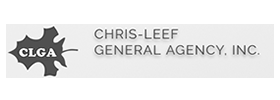
Insurance Claims are requests on behalf of policyholders to insurance agencies in order to receive coverage and/or compensations for a loss that is covered by their policy. Once a claim is filed, the agency then confirms that the claim is either valid or invalid. If validated, the agency will then make the approved payment to either the policyholder or an interested third party that has been approved.
These claims can offer a wide array of coverage, ranging from basic medical procedures to death benefits and almost everything in between, depending on the services offered by the agency. In certain scenarios, a third party can also file insurance claims on behalf of the policyholder. However, that is not always the case.
How do Insurance Claims Work?
The purpose of an insurance claim is to compensate policyholders against loss, often financial loss. In the legal world, this is called indemnification. The policyholder pays premiums to maintain their policy and ensure that they are covered for whatever their policy encompasses. The claims that are most frequently filed are for medical services or goods, loss of life, liability from owning/renting a home, and liability from the operation of vehicles.
For policies regarding causality/property insurance, the main determinant of your coverage cost comes from the amount of claims you file, regardless of who was at fault or the size of the accident. As the amount of claims you file increases, so does the amount you pay to stay covered.
That being said, if the claim you are filing is based on damage that is not your fault, your rates may not rise. If the claim is for damage that you caused, you should expect to see a rate increase. Common examples of damage that are not at the fault of the policyholder are weather damage or your car being hit while parked.
Many other circumstances can increase your rate as well. Things such as your driving record, being in an area prone to natural disasters that can damage whatever you are trying to insure or even having a low credit score can also all lead to a rate hike. To read more about ways to keep the cost of your auto policy down, check out our blog post here.
Not every type of claim is viewed the same by a carrier. Claims that indicate liability in the future, such as having mold or water damage, if your dog bites someone, or if someone is injured on your property are all examples of claims that can act as a red flag for agencies. These types of claims often lead to rate increases.
What are the Different Kinds of Insurance Claims?
Casualty / Property
For many individuals a house is one of, if not the, largest asset purchased in their lifetime. When the policyholder files a claim to damage to their home (or other insured property), the claim is usually filed online and sent to a claims adjuster. The policyholder must report the damage of whatever they own directly to the agency. The claims adjuster will evaluate the claim and the damage, and then verify the claim. If the claim is approved, the adjuster then makes the payment to the policyholder.
Life Insurance
When someone files a life insurance claim, that person must show the original policy, a certificate of death and a claim form. After that, the agency will conduct an in-depth examination of the circumstances of the death to confirm that the death was not categorized under a contract exclusion, such as the result of a crime or a suicide.
Without any extenuating circumstances, the process often takes one to two months. This allows the beneficiaries of the claim to replace the income of the deceased.
Health/Medical

Costs of most medical procedures and health care can be prohibitively expensive. Health insurance policies, whether for an individual or group can protect patients from these costs, which often amount to burdens because of the expensive nature of health care. Most claims are filed by health care providers and are on behalf of the policyholders, unlike property claims. After the provider files the claim, the process is handled electronically and generally requires minimal effort from the policyholder.
The only time a policyholder must actually file a paper claim themselves is when the medical provider does not take part in electronic transmittals, but the services provided are still covered by the insurance policy.
Special Considerations
There is no specific, black and white way to determine what constitutes a rate hike. Some agencies can be more lenient in some areas and stricter in others and each agency can be different. It is important to understand regardless of your insurer, filing any claim can put your rates at risk. Learning as much as you can about your agency is the best way to understand what filing a claim can do to your rates.
No matter what, filing as few claims as possible is crucial in protecting your rates and keeping them constant. Only filing claims in the case of devastating loss is the best way to keep your rates what they are.
As an Independent Agency, you should always consult us before you file a claim so we can consider your unique circumstances.
Written by Max Chaitin.
Disclaimer: This post is to be used for informational purposes only. Each person should consult their insurance or business advisor with respect to matters referenced.

























































